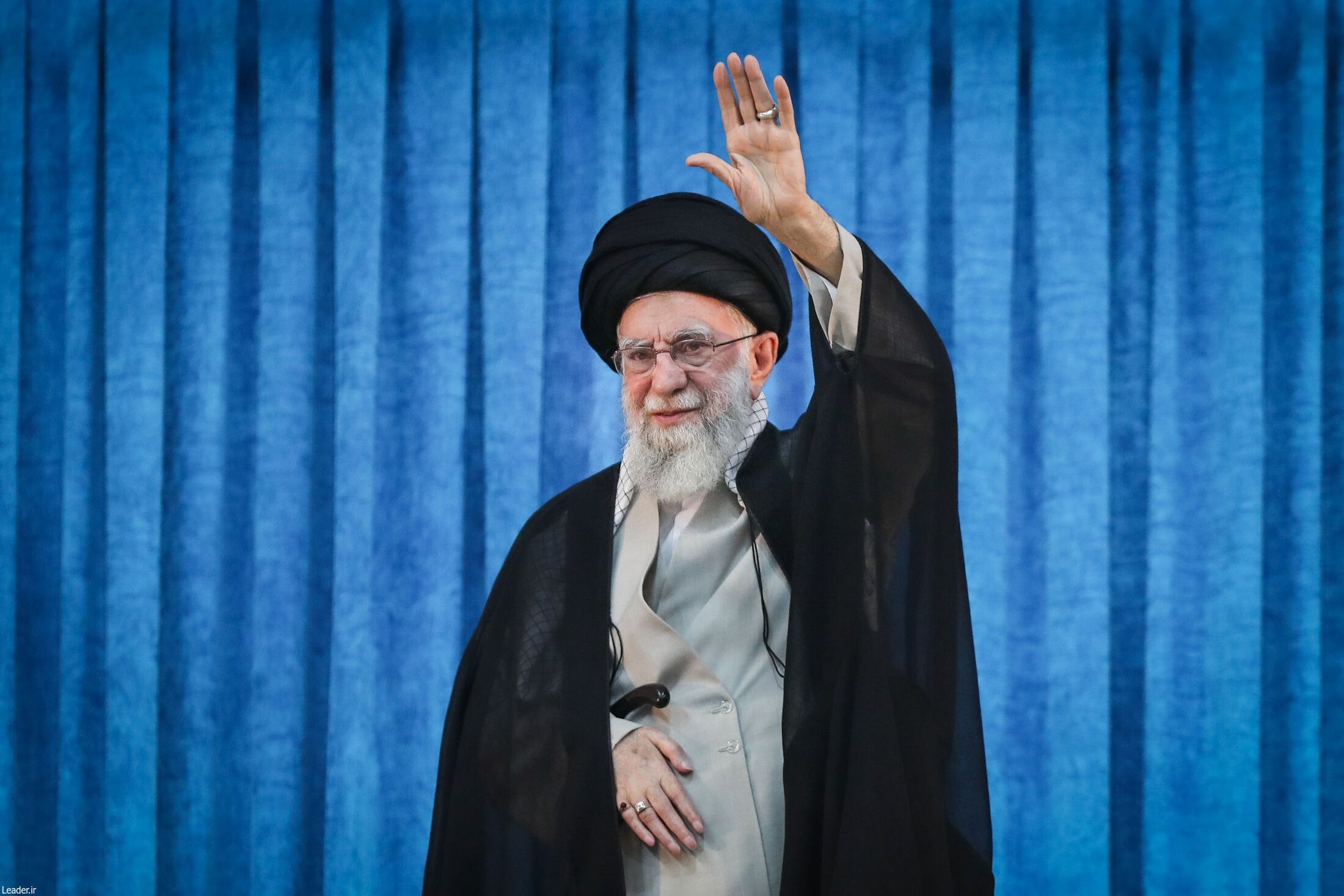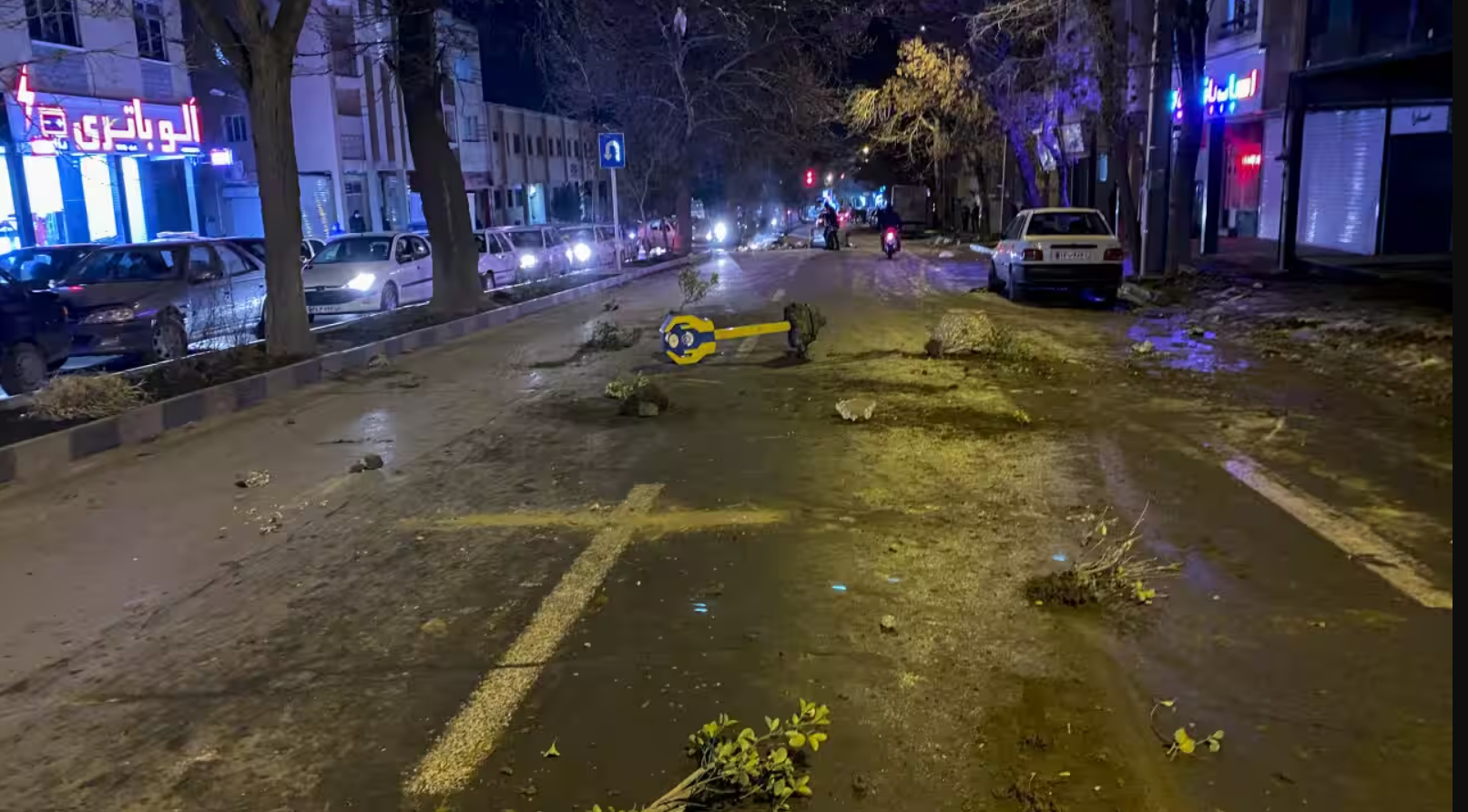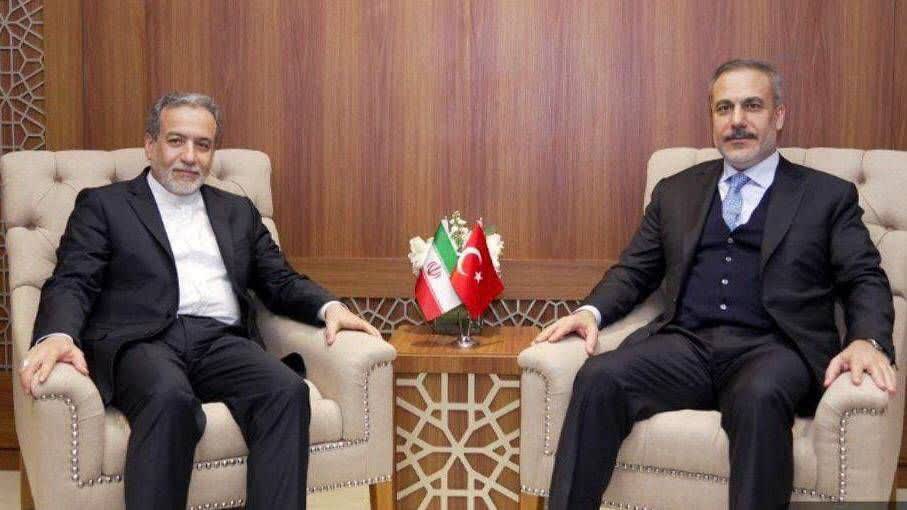IranView24 – Tehran, June 4, 2025
In a powerful address at the mausoleum of Imam Khomeini on the anniversary of his passing, Iran’s Supreme Leader, Ayatollah Seyyed Ali Khamenei, delivered a sweeping speech that outlined the ideological, scientific, and strategic imperatives underpinning the Islamic Republic’s nuclear program. Addressing a massive and emotionally charged gathering, Ayatollah Khamenei reiterated that Iran’s access to a full nuclear fuel cycle is the fruit of national belief in the transformative principle: “We can.”
Decrying the U.S. proposal under ongoing Oman-mediated nuclear talks as fundamentally antagonistic to this doctrine, the Leader asserted that a nuclear industry devoid of enrichment capability is functionally meaningless. “They [the U.S. and Israel] should know,” he declared, “they can do nothing to dismantle Iran’s nuclear capabilities.”
A Testament to Endurance: The Legacy of Imam Khomeini
Commemorating the 36th anniversary of Imam Khomeini’s death, the Supreme Leader lauded the late founder of the Islamic Republic as a revolutionary architect whose vision not only toppled a Western-backed monarchy but also planted the seeds of global resistance against hegemony. “Even today,” Ayatollah Khamenei noted, “his presence is felt in the decline of Western influence, rising multipolarity, and widespread global disillusionment with Zionism.”
Recalling the early days of the Islamic Revolution, he underscored Western shock at the mobilization of an unarmed nation led by a religious scholar that successfully overthrew a regime armed to the teeth. That astonishment only deepened with the establishment of the Islamic Republic, which shattered hopes in Washington for a pliable post-revolutionary order.
The Price of Resistance: Sanctions, Terror, and War
Ayatollah Khamenei listed an extensive catalogue of Western hostilities against Iran, from inciting ethnic unrest and arming separatist groups to supporting Saddam Hussein’s war on Iran and the assassination of nuclear scientists. “Such a wide array of destructive plots is without precedent in the history of modern revolutions,” he noted. Despite this, “the Islamic Republic has not only survived but grown stronger.”
The Leader argued that the resilience of the Iranian nation in neutralizing “over a thousand plots” affirms the vitality of the Islamic system, even in the face of multidimensional economic and military warfare.
Rationality, Not Submission: Imam Khomeini’s Model of Governance
Ayatollah Khamenei cautioned against misinterpreting “rationality” as capitulation to Western powers. “True rationality,” he said, “was embodied by Imam Khomeini—who empowered the nation with self-reliance and preserved the revolution with divine insight.” He identified Velayat-e Faqih and national independence as the twin pillars of the late Imam’s strategic rationalism.
Dismissing the false binary between independence and global isolation, he stressed that real independence means “deciding our fate without awaiting a green light from Washington.”
The Strategic Value of Nuclear Sovereignty
The Supreme Leader emphasized that nuclear energy is not merely about generating clean power—it is a gateway to scientific and technological advancement in medicine, agriculture, environmental sciences, and aerospace. Enrichment, he noted, is the linchpin of nuclear sovereignty. “Without enrichment,” he said, “even a hundred nuclear reactors would be meaningless if fuel had to be sourced externally under foreign conditions.”
Drawing on past experiences, he reminded the audience how Iran’s fuel requests had been denied despite previous diplomatic gestures. It was only the resolve and capability of Iranian scientists that enabled the country to produce 20% enriched fuel domestically.
He warned that current U.S. demands aim to deprive Iran of both scientific progress and the aspirations of its youth. “Their real problem,” he stated, “is with an independent, self-sufficient Iran.”
On Gaza and Zionist Crimes: “Unforgivable Betrayals”
Turning to the ongoing atrocities in Gaza, Ayatollah Khamenei described Israel’s conduct as “beyond comprehension,” especially its targeting of civilians at food distribution centres. He firmly identified the U.S. as complicit in these crimes and called on all Islamic governments to end their silence. “Those who support this regime, through normalization or by blocking aid, will bear eternal disgrace,” he warned.
He reiterated that cooperation with the Zionist regime has severe spiritual consequences and will bring no security to any regime. “By divine decree,” he said, “this regime is unraveling, and its collapse is near.”
A Call for Youth and Spiritual Vigilance
Concluding his remarks, the Leader encouraged the public, particularly the youth, to immerse themselves in the spiritual opportunities of the Day of Arafah through heartfelt supplication, recommending both the famous prayer of Imam Hussein and the 47th supplication from Sahifa Sajjadiya.
Earlier in the ceremony, Seyyed Hassan Khomeini, custodian of Imam Khomeini’s shrine, echoed the Leader’s message, emphasizing that ‘izzat (dignity) is essential to the national identity and must not be compromised under any circumstances.






